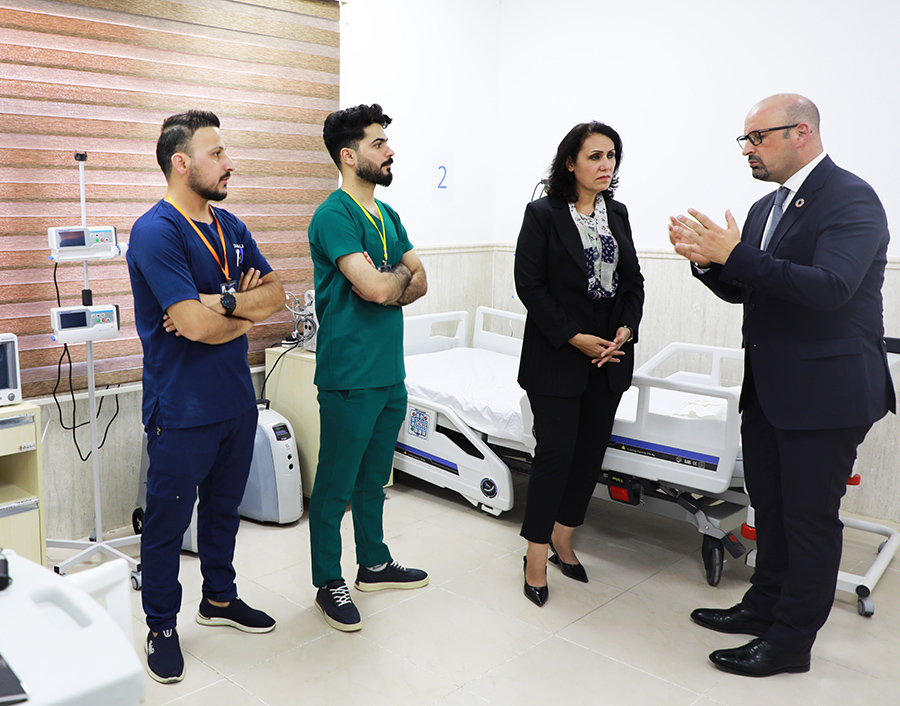 Dr Nagham Hasan meets WHO Representative in Iraq Dr Ahmed Zouiten in Shaikhan Hospital in Ninawa
Dr Nagham Hasan meets WHO Representative in Iraq Dr Ahmed Zouiten in Shaikhan Hospital in Ninawa
Ninawa, 23 January 2023 – Driven by her passion for humanity and her medical expertise, Dr Nagham Hasan, a gynaecologist and Yazidi woman, adopted the responsibility of protecting the Yazidi people in Iraq.
Hailing from Bashiqa Town in northwest Iraq, which saw its share of conflict during the ISIS invasion of Mosul and the surrounding region, Dr Nagham and a team of dedicated nurses and doctors worked tirelessly to provide healthcare services in spite of difficult circumstances.
"The invasion of Mosul had a significant impact on thousands of women and men who were forced out of their homes and sought refuge in Kurdistan. I found myself in the middle of a huge displacement crisis and had to heal both the physical and the emotional wounds of victims and survivors of this horrible war," recalled Dr Nagham.
Kurds, Arabs, Yazidis and Christians were among those who received medical and psychosocial support from Dr Nagham.
"I was among the most fortunate. I was healthy, I had a family, I had technical skills, and I had a job, and above all, my efforts to provide relief to my people were backed by health partners," she said.
Shaikhan Hospital, where Dr Nagham works as a physician and a director, was not far from the heavy clashes during the ISIS crisis. At this critical time, WHO provided technical and logistical support.
"We received medical kits that helped save the victims' lives. We also received extensive training on the best medical practices that helped some of my colleagues, who had not worked in a war environment before," said Dr Nagham.
"Seeing WHO trucks loaded with medical supplies entering the front yard of the hospital brought me a joy that I still cannot describe. As a doctor, I felt relieved and empowered to have the needed support to save the lives of my people."
Over the past years, WHO helped strengthen the package of services provided to populations, including internally displaced persons, who are still affected by the consequences of the conflict. Recently, WHO supported the establishment of an intensive care unit and a cardiac resuscitation unit in Dhaikhan hospital which has already saved the lives of hundreds of patients so far.
"This support has enabled us to provide timely and adequate access to specialized health services such as emergency and cardiac care that are now offered by qualified doctors trained by WHO," Dr Nagham said.
"Without the support of committed organizations like WHO, Shaikhan Hospital would not have been able to offer its patients the same quality of care."




